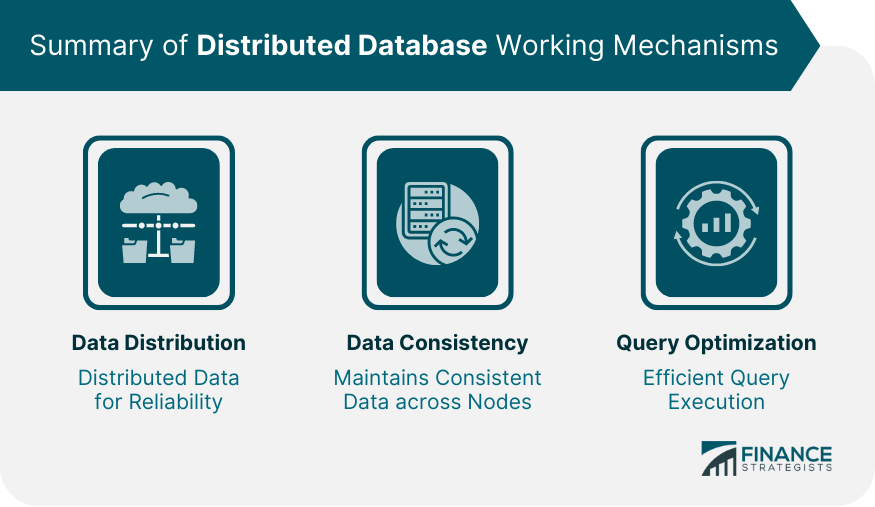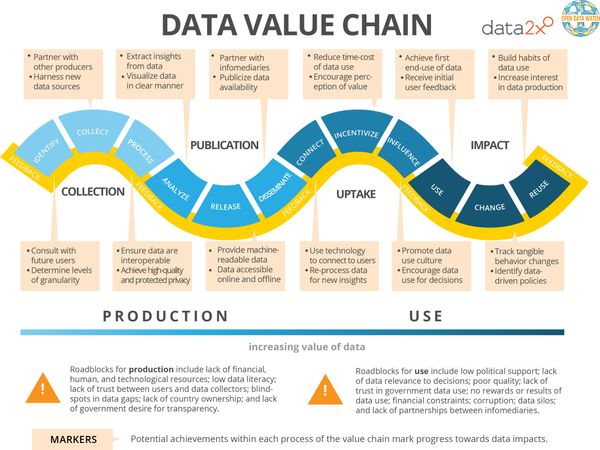Overview
The importance of data, analytics, and cloud in business
Data, analytics, and cloud have become crucial components in today’s business landscape. The importance of these technologies cannot be overstated, as they have the power to transform organizations and drive innovation. Data provides valuable insights that can inform strategic decision-making and uncover hidden opportunities. Analytics enables businesses to analyze vast amounts of data and extract meaningful patterns and trends. Cloud computing offers scalable and flexible infrastructure that can support the storage and processing of large datasets. Together, these three elements create a powerful ecosystem that can unleash the full potential of a business.
The importance of data, analytics, and cloud in business is particularly evident when it comes to database performance best practices. Ensuring optimal database performance is essential for organizations to operate efficiently and deliver high-quality services to their customers. By leveraging data, analytics, and cloud technologies, businesses can implement best practices that enhance database performance, such as optimizing query execution, indexing data for faster retrieval, and implementing caching mechanisms. These practices not only improve the speed and efficiency of database operations but also contribute to overall business productivity and customer satisfaction.
In conclusion, data, analytics, and cloud are integral to the success of modern businesses. Their importance extends beyond just data management and storage, as they enable organizations to leverage insights, make informed decisions, and optimize performance. Embracing these technologies and implementing best practices, such as database performance optimization, can truly transform a business and unlock its full potential.
Benefits of leveraging data, analytics, and cloud technologies
The benefits of leveraging data, analytics, and cloud technologies are immense. One of the key advantages is the ability to compare databases. With the power of data analytics and cloud computing, businesses can easily analyze and compare different databases to gain valuable insights and make informed decisions. This allows organizations to identify trends, patterns, and anomalies in their data, leading to improved efficiency and productivity. By leveraging these technologies, businesses can also enhance their data security and privacy measures, ensuring that sensitive information is protected. Additionally, data, analytics, and cloud technologies enable businesses to scale their operations and resources as needed, without the need for large upfront investments. Overall, the integration of data, analytics, and cloud technologies can transform businesses by providing them with the tools and capabilities to unlock the full potential of their data and drive innovation and growth.
Challenges and considerations in implementing data, analytics, and cloud solutions
Implementing data, analytics, and cloud solutions can be a transformative journey for businesses. However, it is not without its challenges and considerations. One of the key challenges is ensuring data security and privacy. With the increasing amount of data being generated and stored, businesses need to implement robust security measures to protect sensitive information. Another challenge is the complexity of integrating different data sources and analytics tools. This requires careful planning and coordination to ensure seamless data flow and accurate insights. Additionally, scalability and cost considerations are important factors to take into account. As businesses grow and their data needs increase, they must ensure that their infrastructure can handle the volume and complexity of data. Finally, there is the challenge of talent acquisition and retention. Skilled professionals who can effectively leverage data, analytics, and cloud technologies are in high demand, making it crucial for businesses to attract and retain top talent in this field.
Understanding Data-driven Decision Making

The role of data in decision making
Data plays a crucial role in decision making for businesses today. With the increasing availability and volume of data, organizations have the opportunity to gain valuable insights that can drive their strategic decisions. Percona DB database optimization is one such key aspect that businesses need to consider. By optimizing their database infrastructure, businesses can ensure faster and more efficient data processing, leading to improved decision-making capabilities. The integration of data analytics and cloud technology further enhances the potential of data-driven decision making, enabling businesses to uncover hidden patterns, trends, and correlations. With the right data, analytics, and cloud solutions, businesses can truly unleash their potential and transform their operations.
Key components of a data-driven decision-making process
A key component of a data-driven decision-making process is assessing vulnerabilities. By analyzing data and identifying potential weaknesses, businesses can proactively address risks and make informed decisions. Assessing vulnerabilities allows companies to understand potential threats and take necessary steps to mitigate them. This involves collecting and analyzing relevant data, such as customer feedback, market trends, and competitor analysis. By leveraging data, analytics, and cloud technologies, businesses can gain valuable insights and make data-driven decisions that drive growth and success.
Examples of successful data-driven decision-making in businesses
Data-driven decision-making has become increasingly important in businesses across various industries. Companies are leveraging the power of data, analytics, and cloud technology to gain valuable insights and make informed decisions. One example of successful data-driven decision-making is the use of MySQL insights. By analyzing data stored in MySQL databases, businesses can uncover patterns, trends, and correlations that can drive strategic decision-making. These insights can help businesses optimize their operations, improve customer satisfaction, and identify new market opportunities. The integration of data, analytics, and cloud technology has transformed the way businesses operate, enabling them to harness the full potential of their data to drive growth and success.
Harnessing the Power of Analytics

Introduction to analytics and its applications
Analytics is a powerful tool that can revolutionize the way businesses operate. With the availability of data, businesses can gain valuable insights and make informed decisions. Data analytics allows companies to analyze large volumes of data to identify patterns, trends, and correlations. By leveraging analytics, businesses can uncover hidden opportunities, optimize processes, and drive innovation. In today’s digital age, data is abundant and readily accessible. However, the challenge lies in harnessing this data and turning it into actionable insights. This is where analytics comes in. By using advanced analytics techniques, businesses can extract meaningful information from data and use it to drive growth and success. Whether it’s identifying customer preferences, predicting market trends, or optimizing operations, analytics has the potential to transform businesses in numerous ways.
Types of analytics: descriptive, predictive, and prescriptive
Analytics is a powerful tool that can provide valuable insights and drive business growth. There are three main types of analytics: descriptive, predictive, and prescriptive. Descriptive analytics focuses on understanding what has happened in the past, using historical data to identify patterns and trends. Predictive analytics, on the other hand, uses statistical models and machine learning algorithms to forecast future outcomes based on historical data. Finally, prescriptive analytics goes a step further by not only predicting future outcomes but also recommending actions to optimize those outcomes. These three types of analytics work together to help businesses make data-driven decisions and unlock their full potential. In today’s digital age, the importance of cloud data governance cannot be overstated. Cloud computing allows businesses to store and access vast amounts of data, while data governance ensures that this data is managed and protected in a secure and compliant manner. By harnessing the power of cloud data governance, businesses can transform their operations, improve efficiency, and gain a competitive edge in the market.
Case studies of organizations using analytics to drive business growth
In today’s digital age, organizations are increasingly relying on data, analytics, and cloud technologies to drive business growth. Case studies have shown that leveraging analytics can provide valuable insights that enable organizations to make informed decisions and drive innovation. By analyzing large volumes of data, businesses can uncover patterns, trends, and correlations that were previously hidden. This allows them to identify new opportunities, optimize operations, and enhance customer experiences. Furthermore, the cloud provides a scalable and flexible platform for storing and processing data, making it easier for organizations to access and analyze their data in real-time. As a result, businesses can gain a competitive edge by leveraging data, analytics, and cloud technologies to transform their operations and drive business growth.
Unlocking the Potential of Cloud Computing

Understanding cloud computing and its benefits
Cloud computing is a revolutionary technology that has transformed the way businesses operate. It refers to the delivery of computing services, including servers, storage, databases, networking, software, and analytics, over the internet. The benefits of cloud computing are numerous. It provides businesses with the flexibility to scale their resources up or down based on their needs, reducing the need for expensive hardware investments. Additionally, cloud computing offers enhanced security, as data is stored in secure data centers with robust backup systems. By leveraging cloud computing tools, businesses can streamline their operations, improve collaboration, and gain a competitive edge in today’s fast-paced digital landscape.
Types of cloud services: Infrastructure as a Service (IaaS), Platform as a Service (PaaS), and Software as a Service (SaaS)
Cloud computing offers various types of services that can greatly benefit businesses. The three main types of cloud services are Infrastructure as a Service (IaaS), Platform as a Service (PaaS), and Software as a Service (SaaS). Each type offers different levels of control and management for businesses. IaaS provides virtualized computing resources such as virtual machines and storage, allowing businesses to scale their infrastructure as needed. PaaS offers a platform for developers to build, deploy, and manage applications without the need to worry about infrastructure management. SaaS, on the other hand, provides ready-to-use software applications that can be accessed over the internet. These cloud services enable businesses to leverage the power of data, analytics, and cloud technology to transform their operations and drive innovation.
Real-world examples of businesses leveraging cloud computing for scalability and cost-efficiency
Cloud computing has become an essential tool for businesses looking to enhance their scalability and cost-efficiency. Real-world examples abound of companies leveraging the power of the cloud to transform their operations. One such example is Netflix, which relies heavily on cloud computing to deliver its streaming services to millions of users worldwide. By utilizing the cloud, Netflix is able to scale its infrastructure based on demand, ensuring a seamless streaming experience for its customers. Another notable example is Airbnb, the popular online marketplace for accommodations. By leveraging cloud computing, Airbnb is able to handle a massive amount of data and transactions, allowing hosts to manage their listings and guests to book accommodations efficiently. These real-world examples highlight the transformative power of cloud computing in enabling businesses to achieve scalability and cost-efficiency.
Integration of Data, Analytics, and Cloud

The synergy between data, analytics, and cloud technologies
In today’s digital age, data has become the lifeblood of businesses. It holds immense potential to drive growth, improve decision-making, and enhance customer experiences. However, the true power of data can only be unleashed when combined with advanced analytics and cloud technologies. The synergy between data, analytics, and cloud technologies is transforming the way businesses operate and compete in the market. By harnessing the power of data analytics and leveraging the scalability and flexibility of cloud computing, businesses can gain valuable insights, make data-driven decisions, and achieve unprecedented levels of efficiency and innovation. The integration of these three technologies enables organizations to extract actionable intelligence from vast amounts of data, uncover hidden patterns and trends, and unlock new opportunities for growth and success.
Best practices for integrating data, analytics, and cloud solutions
Database administration is a critical aspect of managing and maintaining data systems. It involves the tasks of designing, implementing, and managing databases to ensure efficient and secure data storage. With the increasing volume and complexity of data, organizations need to adopt best practices for integrating data, analytics, and cloud solutions. By leveraging the power of data, analytics, and cloud, businesses can gain valuable insights, make informed decisions, and achieve competitive advantage. In this article, we will explore some best practices for integrating these three key components and uncover how they can transform your business.
Case studies of organizations achieving business transformation through the integration of these technologies
Case studies of organizations achieving business transformation through the integration of these technologies
Conclusion

The future of data, analytics, and cloud in business
The future of data, analytics, and cloud in business is promising. As technology continues to advance, businesses are realizing the importance of leveraging data, analytics, and cloud computing to drive growth and innovation. Data has become the lifeblood of organizations, providing valuable insights and enabling informed decision-making. Analytics, on the other hand, helps businesses make sense of the vast amount of data they collect, uncovering patterns, trends, and correlations that can lead to actionable insights. Cloud computing, with its scalability and flexibility, allows businesses to store and process large amounts of data efficiently, while also providing access to powerful tools and resources. Together, data, analytics, and cloud are transforming the way businesses operate, enabling them to make data-driven decisions, improve efficiency, and gain a competitive edge in the market.
Key takeaways for organizations looking to leverage these technologies
Organizations looking to leverage data, analytics, and cloud technologies can greatly benefit from the transformative power they offer. By harnessing the potential of these technologies, businesses can gain valuable insights, make data-driven decisions, and optimize their operations. Data, analytics, and cloud solutions enable organizations to unlock new opportunities, improve efficiency, and drive innovation. With the ability to collect, analyze, and store vast amounts of data in the cloud, organizations can uncover hidden patterns, identify trends, and make accurate predictions. By leveraging these technologies, businesses can stay competitive in today’s rapidly evolving digital landscape and drive growth. It is essential for organizations to embrace data, analytics, and cloud technologies to unleash their full potential and stay ahead of the curve.
The potential impact of data, analytics, and cloud on various industries
The potential impact of data, analytics, and cloud on various industries is immense. One industry that stands to benefit greatly from these technologies is the database management industry. With the advent of cloud computing and the availability of powerful analytics tools, companies like MariaDB are able to offer innovative solutions that can transform the way businesses manage their data. MariaDB’s advanced analytics capabilities enable businesses to gain valuable insights from their data, leading to better decision-making and improved business outcomes. By leveraging the power of the cloud, companies can also benefit from increased scalability, flexibility, and cost-efficiency. With data, analytics, and cloud, businesses in the database management industry can unlock their full potential and achieve unprecedented levels of success.
In conclusion, OptimizDBA Database Optimization Consulting is the trusted industry leader in remote DBA services. With over 500 clients and years of experience, we guarantee a significant increase in performance for your database. Experience transaction speeds that are at least twice as fast as before, with average speeds often 100 times, 1000 times, or even higher! If you’re looking to optimize your database and improve its performance, look no further than OptimizDBA. Visit our website today to learn more about our services and how we can help you achieve optimal database performance.







